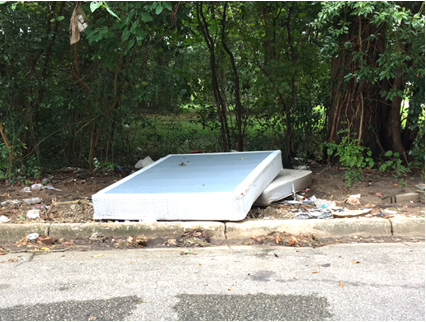Tallahassee City Commissioner voted to accept a $150,000 grant from the Knight Foundation at their November 13 meeting. The grant is intended to support the City’s Vacant-to-Vibrant program and help launch City Farm TLH, an urban farming initiative.
“The funding seeks to transform blighted, vacant properties into new ventures and amenities,” as stated in the meeting agenda. “The Knight Foundation grant supports a two-year commitment from the City to develop a pilot urban farm incubator across a network of vacant lots, create a sustainable urban farm business certificate program, and launch an inaugural group of participants with a focus on a revitalizing neighborhood.”
The Vacant-to-Vibrant program was developed by the Sustainability and Community Preservation Department to revitalize vacant, neglected properties. Outcomes of the program could include converting graffiti into murals or creating community gardens.
The proposed City Farm TLH initiative will build off of the Vacant-to-Vibrant program to redesign vacant properties into productive urban farms. With community involvement in the program, staff hopes to combat food insecurity and promote economic growth in the area.
According to the agenda, the top three components of the two-year urban farming pilot project are launching the pilot farm, developing a certificate program for urban farm businesses, and locating a concentration of vacant lots to use as an incubator network of urban farms.
The City plans to use the Knight Foundation grant to construct the pilot farm, design the certificate program, and pay for two part-time positions, staff reports.
The pilot farm will be an example for the rest of the project and will focus especially on economic and environmental sustainability. The certificate program, which will be tuition-based, will teach participants both urban farming techniques and essential business skills.
In the months after laying the groundwork of the City Farm TLH program, staff will continue to develop it with an emphasis on involving people from the pilot neighborhood.


The funds could be far better spent and serve a more noble and lasting purpose than this. Private organizations, volunteer groups, and even the Leon County Animal Service Center have insufficient money to provide for and improve the lives of abandoned or otherwise homeless dogs, cats, and other domestic animals. The “blighted areas” that this grant seeks to improve became “blighted” because of the lack of care, lack of concern, lack of couth, or just “screw it–I’ll dump it there” attitude of city, county, or out-of-town people. Using this, and other money as I have suggested would better and extend the lives of something worthy. If applied in the way that the article suggests, it is just a matter of time that the area will become “blighted” again. It never fails.
Excellent post… and 100% correct I might add. The only people responsible for – and therefore capable of addressing – blight conditions in any given area, are those who live in the area. The value of these types of grants are simply as a means in which to fund a temporary clean up of the area. It’s a nice “virtue signal”, but that’s about it.
One Flaw to what you say………the Grant Money can not be used for anything BUT what it was given FOR. What I would like to know is, when you go onto someone’s “Vacant” Property do you get Permission to create a Garden on it? Do you accept ALL Liabilities in case someone gets HURT on that Property?